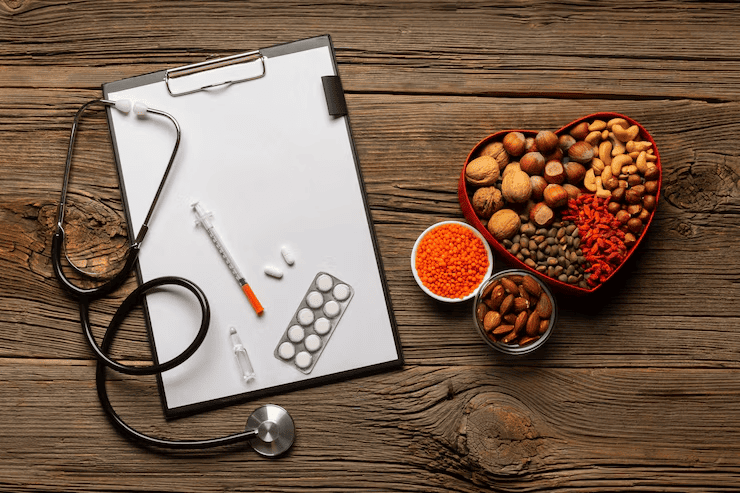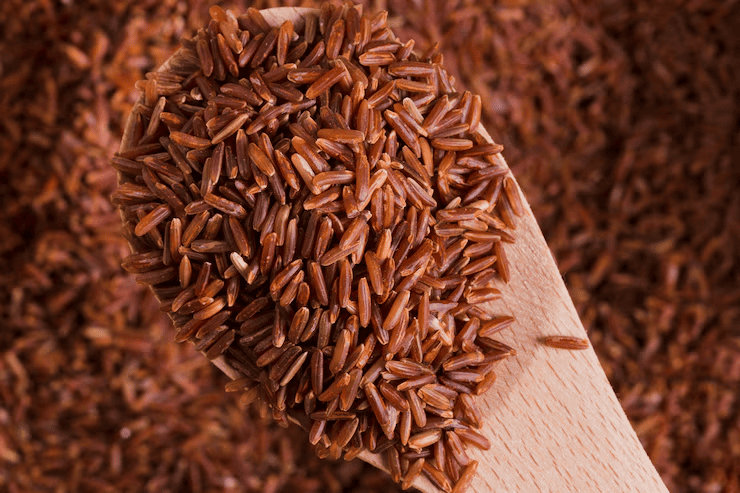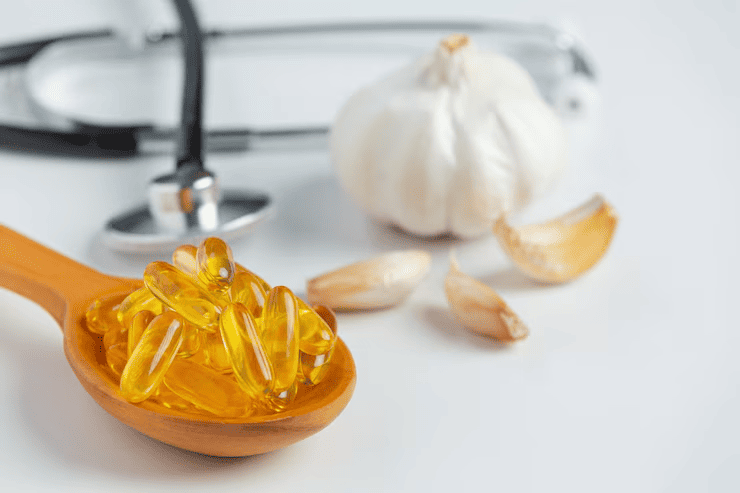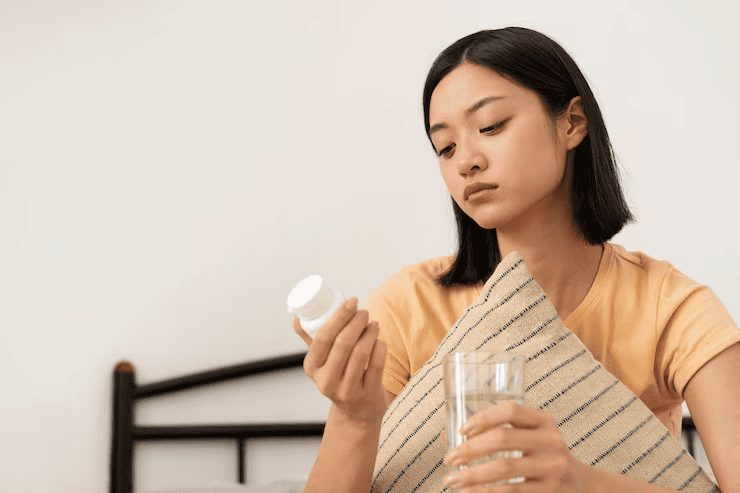









Free Shipping (WM) | Sign Up Biobay Membership for Free 50 Points & Exclusive Benefits
Managing cholesterol is a key part of protecting long-term heart health. As more people look for alternatives to medication, natural cholesterol supplement in Malaysia have gained attention for their supportive role in daily wellness. These options can fit easily into a balanced lifestyle, offering added help for those aiming to maintain healthy cholesterol levels through simple, consistent habits.
- Natural cholesterol-lowering supplements provide a gentler alternative for managing heart health, especially for those seeking options beyond medication.
- Common supplements to lower cholesterol include red yeast rice, artichoke leaf extract, garlic, oats, niacin, omega-3s, pine bark, and plant sterols.
- For best results, take cholesterol supplements consistently with meals, following recommended timing and dosages suited to each type.
- Individuals with certain medical conditions, on medication, or pregnant should consult a doctor before starting any cholesterol-lowering supplement.

Natural supplements are becoming a preferred choice for many who want to manage cholesterol with fewer side effects and long-term health in mind. Here’s how to lower cholesterol with natural supplements:
Some natural compounds support healthy lipid levels without the harsh impact of pharmaceuticals.
For those experiencing side effects from cholesterol-lowering drugs, natural alternatives may offer relief.
Many of these supplements provide antioxidant, anti-inflammatory, and liver-supportive benefits beyond lowering cholesterol.
Combined with a balanced diet and exercise, these supplements can be part of a proactive approach to long-term heart health.
Options like red yeast rice, garlic, and artichoke leaf extract are sourced from nature and have been used for centuries in traditional health systems.
Want to support your cardiovascular wellness naturally? Explore trusted supplement for heart health and discover what works best for your lifestyle.

Taking charge of your cholesterol levels can be a powerful step toward better heart health. With the help of natural supplements, it's possible to support your body in maintaining balanced cholesterol, gently and effectively.
Below is a comparison of well-researched supplements commonly used to maintain healthy cholesterol levels.
|
Supplement |
Key Benefit |
How It Works & Why It Helps |
|
Red Yeast Rice |
Lowers LDL and total cholesterol |
According to Xu et al. (2017), red yeast rice induced less fatigue side effects and exerted comparable lipid-lowering effects compared to statin drugs. Contains monacolin K (similar to statins) that helps reduce cholesterol; used in TCM for heart health. |
|
Artichoke Leaf Extract |
Supports bile flow and liver detox |
Studies by Salem et. al. (2015) shows that the active compound found in artichoke consists of cyanarin (improves bile acid secretion) and luteolin (prevents cholesterol production). |
|
Pine Bark Extract |
Reduces inflammation and improves circulation |
A 5-week clinical trial by Hospital Universitari Sant Joan (2014) found that 150mg/day of pine bark improved cardiovascular risk in patients with mild hypertension. High in proanthocyanidins, which support blood vessels and reduce oxidative stress. |
|
Garlic Extract |
LDL cholesterol reduction and supports circulation |
Contains allicin, which may reduce cholesterol and blood pressure; also known for immune support.
|
|
Oats (Beta-Glucans) |
LDL cholesterol lowering |
Beta-glucan fibre binds to cholesterol in the gut, blocking its absorption naturally.
|
|
Niacin (Vitamin B3) |
Raises HDL cholesterol and lowers triglycerides |
Regulates blood lipids and improves cholesterol balance; high doses should be monitored.
|
|
Omega-3 Fatty Acids |
Reduces triglycerides |
Found in fish oil and flaxseed oil; reduces inflammation and supports a healthier lipid profile.
|
|
Plant Sterols & Stanols |
Blocks cholesterol absorption |
Compete with cholesterol in the digestive tract, helping prevent its absorption into the body.
|
Looking for a natural way to manage your blood pressure? Discover supplement for high blood pressure to support a healthier heart, safely.

Adding natural cholesterol-lowering supplements into your day can be simple with the right habits. Here’s how to take each one effectively for best results:
|
Supplement |
How & When to Take It |
|
Red Yeast Rice |
Take in the evening with dinner to enhance absorption and reduce side effects.
|
|
Artichoke Leaf Extract |
Consume before meals, either as capsules or liquid, to stimulate digestion and bile flow.
|
|
Pine Bark Extract |
Take in the morning or midday with water, with or without food.
|
|
Garlic Extract |
Best taken in the morning with breakfast; choose odourless capsules to avoid discomfort.
|
|
Oats (Beta-Glucan) |
Have it as part of your breakfast (e.g. oatmeal) or take beta-glucan supplements with water.
|
|
Niacin (Vitamin B3) |
Take with meals, preferably dinner; begin with low doses to reduce flushing risk.
|
|
Omega-3 Fatty Acids |
Take with meals like breakfast or lunch; pairing with food improves absorption.
|
|
Plant Sterols/Stanols |
Consume with main meals in capsule or fortified food form to block cholesterol absorption.
|
Some supplements come in the form of a combination of natural cholesterol-lowering ingredients for synergistic effect, hence it's important to follow the recommended dosage and instruction when consuming, for maximum result.
- Set reminders on your phone or pair supplements with regular routines like meals.
- Stay hydrated when taking capsules, especially those with fibre or oils.
- Track your intake with a supplement journal or app to stay consistent.
- Avoid doubling doses if you forget—just resume your usual schedule the next day.
- Always consult a healthcare provider, especially if you’re taking medications or managing a condition.

While natural supplements can support heart health, they may not be suitable for everyone. Certain groups should exercise caution or avoid specific supplements altogether:
|
Supplement |
Who Should Avoid It & Why |
|
Red Yeast Rice |
Avoid it if you're already on statins, have liver conditions, or are pregnant/breastfeeding. May cause muscle pain or liver enzyme elevation when combined with cholesterol medication.
|
|
Artichoke Leaf Extract |
Not recommended for those with gallstones, bile duct obstruction, or allergies to plants in the Asteraceae family.
|
|
Pine Bark Extract |
Generally safe, but those with autoimmune disorders or on immunosuppressants should consult a doctor first.
|
|
Garlic Extract |
Should be avoided before surgery or by people on blood thinners, as it can increase bleeding risk.
|
|
Oats (Beta-Glucan) |
Usually safe, but those with gluten sensitivity or celiac disease should opt for certified gluten-free oats.
|
|
Niacin (Vitamin B3) |
Not suitable for people with liver disease, gout, or peptic ulcers. High doses may cause flushing or liver toxicity.
|
|
Omega-3 Fatty Acids |
Avoid high doses if you have a bleeding disorder or are on anticoagulants unless supervised by a doctor.
|
|
Plant Sterols/Stanols |
Safe for most, but those with sitosterolemia (a rare genetic disorder) should avoid them entirely.
|
Always speak to a healthcare provider before starting any supplement—especially if you’re taking medication or managing a chronic health condition.
Start with one supplement at a time to monitor your body’s response. If you experience side effects, discontinue use and consult a doctor.
Natural supplements offer targeted support for maintaining healthy cholesterol and promoting cardiovascular function. Instead of overwhelming the body, they work gently to enhance your wellness efforts, especially when combined with diet and lifestyle improvements.
Think of these supplements as daily tools for long-term heart health. Consistent use and proper guidance can help improve lipid levels and contribute to a stronger, more balanced system.
Browse Biobay’s curated selection of healthcare products in Malaysia and take your next step towards healthier living.
